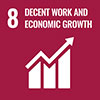Education on Entrepreneurship: What, Who and How
Entrepreneurship has been from several years on the political agenda in many countries, since it is considered one of the main engines to promote, among others, innovation, competitiveness and job creation. In this sense, both public and private institutions offer training programs to increase entrepreneurship in general and specific programs for entrepreneurial population.
This article is a brief review of the current state of entrepreneurship education, with special emphasis on the situation of Spain compared to Europe. In order to achieve this goal and based on secondary sources, we present data regarding the percentage of training in entrepreneurship, the type of training and the levels of education in which this training is done. Then, we analyze the specific situation at university and the role of distance education.
The main results show that entrepreneurship training is widespread in both the general population and in the entrepreneurial population. Moreover, there is an overlap between the formal and informal training systems. Regarding the level of education, the school level and post-school level also overlap. Finally, we point out the heterogeneity of methodological approaches and content att universitiy level that influence the perceived low quality of the university and the concentration of training in economics and business faculties and business schools.
This article concludes that efforts must be made to adapt methodologies to a competencies approach in training programs, specifically at college level and expand education and training in entrepreneurship beyond the disciplines of Economics and Management. In this sense, distance education can help in increasing this training for other groups who so far are not sufficiently covered and contribute to increase the quality of training.
ODS



 Laura Lamolla
Laura Lamolla Doctorate in Political Sciences and Administration from the Autonomous University of Barcelona. Master’s in International Management from the Community of European Management Schools. Degree & MBA from ESADE Business School. Her interests focus on gender studies, entrepreneurship and work-life balance. She has taken part in several research projects on these topics.



